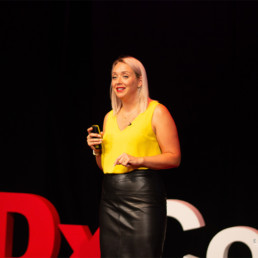
Written by Hannah Cotton
Founding director of Inclusive Leadership firm, EquALLIES and promotes global inclusion on Twitter under #FFBInclusion.
I’ll confess, I’m getting a little sick of the three word mantras. I’ve come to liken them to vacuous cross-party political promises and safety-critical health advice alike. They’ve been over-used, over-simplified and under-estimate the intelligence of many to accommodate more.
But I’m also a realist, relying heavily on my analytical skills to draw conclusions that support facts. So, somewhat reluctantly, I acknowledge that three word mantras are highly effective at delivering a message. They are effective at activating people to change.
All else being equal, what’s required for change?
Our need to learn how to change has never been greater. Be it covid, Brexit, inequalities and social injustice or climate change, we must all grapple with the “new normal’; and that means change. Maybe it’s just at the fore of our thoughts as we find this “new normal” may be so significantly removed from the old.
Change is constant. Risks change, rules change. Priorities, processes and systems change. Change is not tied to global pandemics or social injustices. None of it needs a rising of the people, form T216 or social media. If the driver of a deadly efficient biological virus has taught us anything, it surely must be that.
Many I move amongst embrace change lovingly; change is opportunity, growth and progress. Through discussion, I’ve found most with this perspective draw from negative experiences of a need to change to reach this conclusion. Many have grown through change linked to pain; loss of a family member, loss of a job, loss of safety or health, or recovery from addiction.
Experience of the process builds confidence in change management. With knowledge and understanding, we can lead others with positivity to not just face change, but also to identify opportunities for change, and how to promote it. The drive to build on past improvements spurs the next, and shared enthusiasm facilitates taking others on the same journey.
There are also those that I recognise approaching change with a different mindset; when one equates change with fears of the unknown and loss of a comfort blanket.
However, let me clearly state at this point, there is a huge difference in those who require routine and consistency and those resisting change. Neurodiversity is not a problem to be moulded into homogenous thinking. Neurodiversity is a positive example of ‘different’ that we require change to embrace.
So, with over 100 years of collective experience in cross-industry leadership, psychology, business and cultural expertise, EquALLIES have defined this three word mantra to effectively manage meaningful, inclusive change. We’ve worked hard to condense our knowledge to provide the skills, learning, experiences and opportunities to lead oneself, and others, progressing the individual, their workplaces and communities.
We go beyond the protected characteristics to embrace all stakeholders, including socio-economic, social capital and geographic inequalities. After all, diversity is nothing without inclusion, and inclusion is impossible when it excludes.
Engage: Get Ready To Work
Engagement combines the need to inspire someone to do something. EquALLIES understands that means leading ourselves to change and also leading others.
No-one is absolved from action. Ask yourself some questions;
- Why? Define your purpose. Understanding the reasons for change will be key to keep you focused and motivated when times are tough.
- What? Define your goals, plan a course of action, understanding risks and measurable outcomes. This will keep you on track for delivery.
- How? Outline the resources you will require to achieve your goals. Knowing your strengths and your barriers to achievement will help you source the services, products and collaborators for success.
For example, in the context of school, where the goal is learning, we have two cogs; pupil and teacher. To engage, the pupil may prepare for the year with a new uniform and pencil case, but without corresponding resources from the teacher, their shared goals will be destined to fail. There is a requirement for individuals to prepare for cohesion and collaboration to address the issue at hand.
Educate: Do the Work!
Once you have engaged yourself, employed the resources you need to move forward towards a shared goal you must get ready to grow. Becoming mindful of yourself, knowing what growth feels like, how you address challenging situations and how to approach new ideas will be key. When you understand your own learning style, you can then do the work to improve your knowledge. This is when education yourself leads to educating others.
Empower: Get to Work!
Once the individual and collective are engaged and educated, it’s time to act.
Understanding barriers to action will include the process of liberating yourself from inaction, apathy or denial. Empowerment gives you the tools to challenge yourself, and others from issues that may be deeply ingrained, have formed bad habits and institutionalised ways of thinking. Enabling you to remove these barriers and act on behalf of yourself, and others, can safely be used towards realising your individual and collective goals.
Conclusion
For one to change, one must be able. Having the confidence to be you and to know your authentic brand of leadership is important. Having a network to support you, to inspire, to share successes with and to draw from when further strengths are required is important. Having a safe space and opportunity to practice your skills and reflect on your learning are important.
Mantras may not always hold the detail we need to effect change. However, if they grab your attention and engage the individual enough to learn how to act on them, the journey transcends the need to re-skill in future. By focusing on understanding self AND others, the fear of change, of loss and exclusion are replaced with practicing what we so often preach.
Individually important but collectively successful, Engage > Educate > Empower is the three word mantra embracing leadership, diversity and inclusion.

